Meet our Graduate Students
The Department of Biology at Tennessee Tech has a diverse graduate program comprised of both M.S. (Biology) and Ph.D. (Environmental Sciences) students. Our students are represented by the Biology Graduate Student Society (BGSS), an active organization within the department that facilitates and encourages both academic and social opportunities for graduate students.
While working with advisors and mentors, our graduate students have opportunities to participate in hands-on activities to learn what they need to conduct research and gain knowledge before entering into the workfield and starting careers in their desired field.
Learn more about all of our students below:
Ph.D. Students
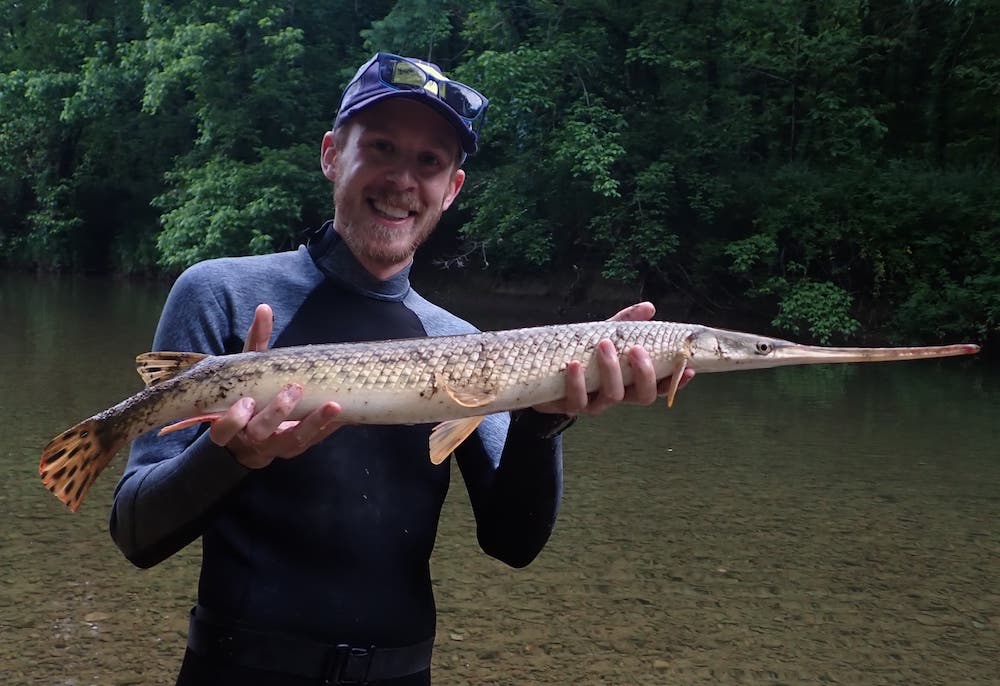
Adam Bajo-Walker
Advisor: Dr. Kit Wheeler
My doctoral research will explore the ecological consequences of dam removals and
the restoration of migratory sucker (Catostomidae) runs in the rivers of western North
Carolina. By examining the planned removal of the "Rough Fish" Dam on the North Fork
Mills River, my work will investigate how reconnecting these systems can affect nutrient
dynamics, food webs, and resident fish communities. This work will aim to shed light
on how the return of these "hidden" migrations can rejuvenate nutrient cycling, strengthen
food web connectivity, and inform future dam removal and aquatic restoration projects
across the southeastern United States.
- M.S. Biology, Tennessee Technological University
- B.S. Biology: Aquatic Sciences, Grand Valley State University
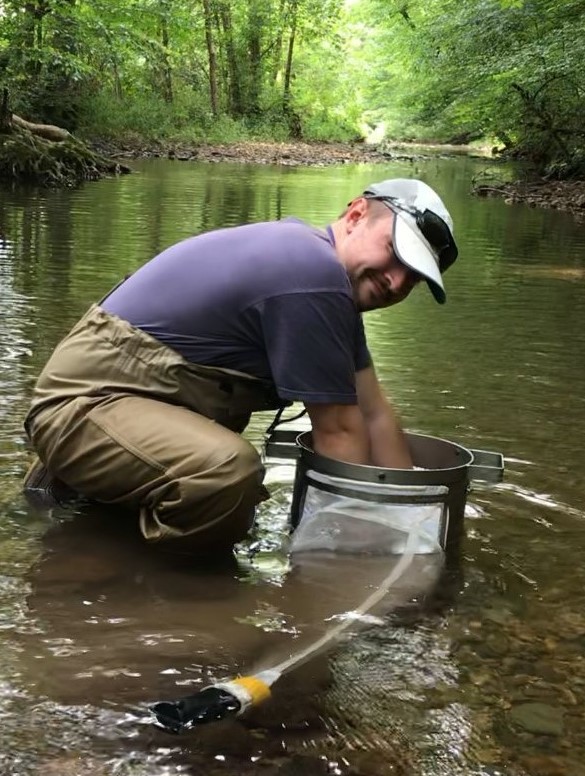
Peter Blum
Advisor: Dr. Justin Murdock.
My dissertation focuses on how stream insects, that develop in sediments contaminated
with toxic polychlorinated biphenyls (PCBs), can transfer PCBs as winged adults to
terrestrial consumers, including gray bats (Myotis grisescens), at Arnold Air Force Base in Tullahoma, TN. I am investigating emergent adult insect
biomass and PCB export from streams and reservoirs, assessing PCB risk to wildlife,
and how stoichiometry influences the transfer of PCBs.
- B.S. Ecology, Evolution and Environmental Biology, Appalachian State University
- M.S. Biology, University of North Carolina at Greensboro
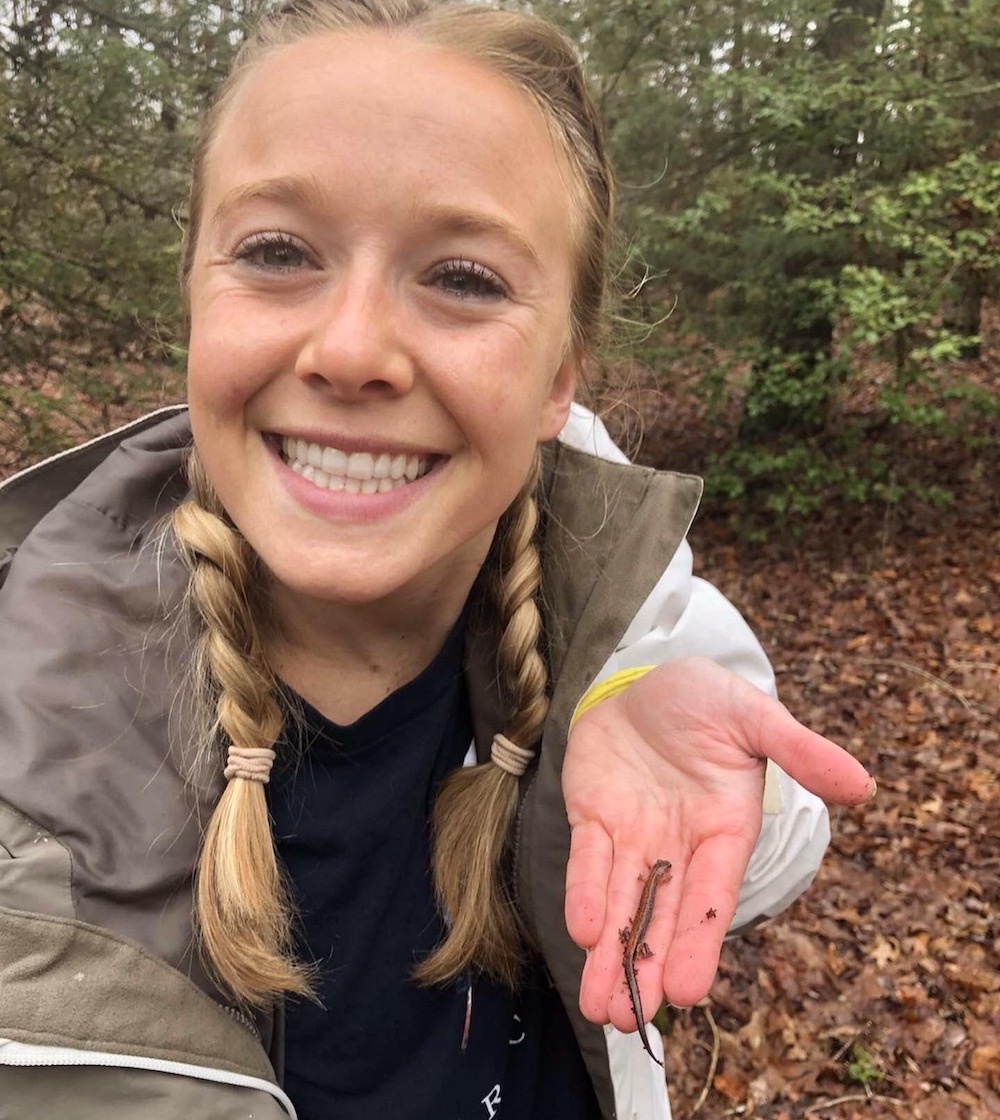
Miranda Gaupp
Advisor: Dr. Carla Hurt
For my dissertation, I am creating genomic resources for the streamside salamander
(Ambystoma barbouri). Specifically, I am assembling and annotating a reference genome
and the species' transcriptome. Additionally, I am performing comparative gene expression
analysis in order to investigate population-level differences in response to temperature.
- B.S. Millsaps College
- M.S. Georgia Southern University
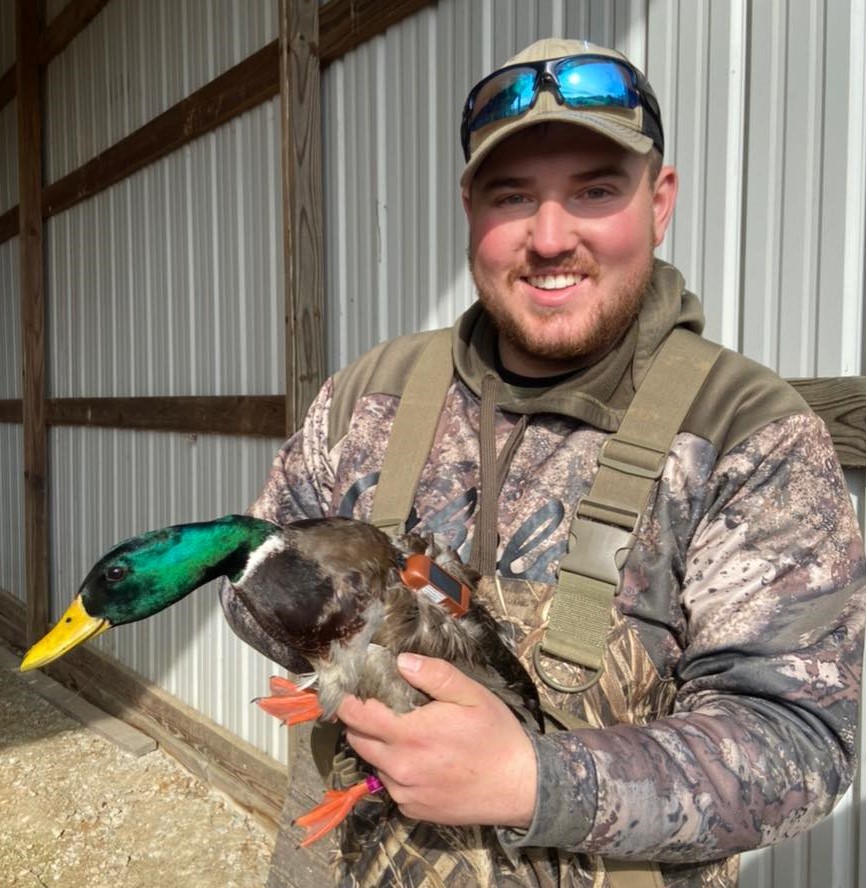
Cory Highway
Advisor: Dr. Brad Cohen
Cory's research examines the impact of anthropogenic disturbance and predation risk
on the habitat selection, activity patterns, and distribution of wintering waterfowl
in western Tennessee. Specifically, Cory is exploring the strategic placement of rest
areas devoid of predation risk to create a more ubiquitous distribution of wintering
waterfowl across available habitats. This research also aims to increase harvest opportunities
for waterfowl hunters through the reduction of recursive activity patterns in wintering
waterfowl, thereby improving stakeholder satisfaction.
- B.S. Natural Resources Management, Grand Valley State University
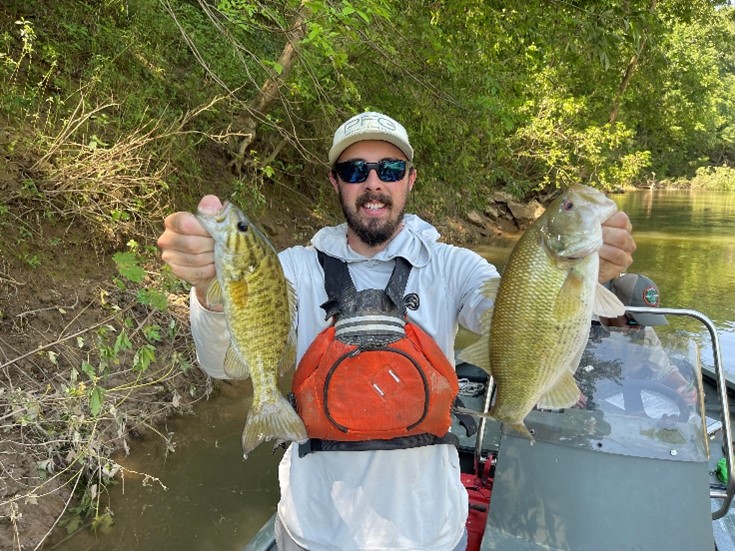
Thomas Miles
Advisor: Dr. Mark Rogers
My dissertation focuses on black bass genetics in the state of Tennessee. Specifically,
I will be assessing introgression between invasive Alabama Bass and native Smallmouth
Bass in Tennessee’s rivers and reservoirs. I hope to project the potential future
spread and impact of Alabama Bass in Tennessee and across the Southeastern United
States to inform fisheries management objectives and decision making across the state
and region.
- B.S. Mississippi State University
- M.S. Iowa State University
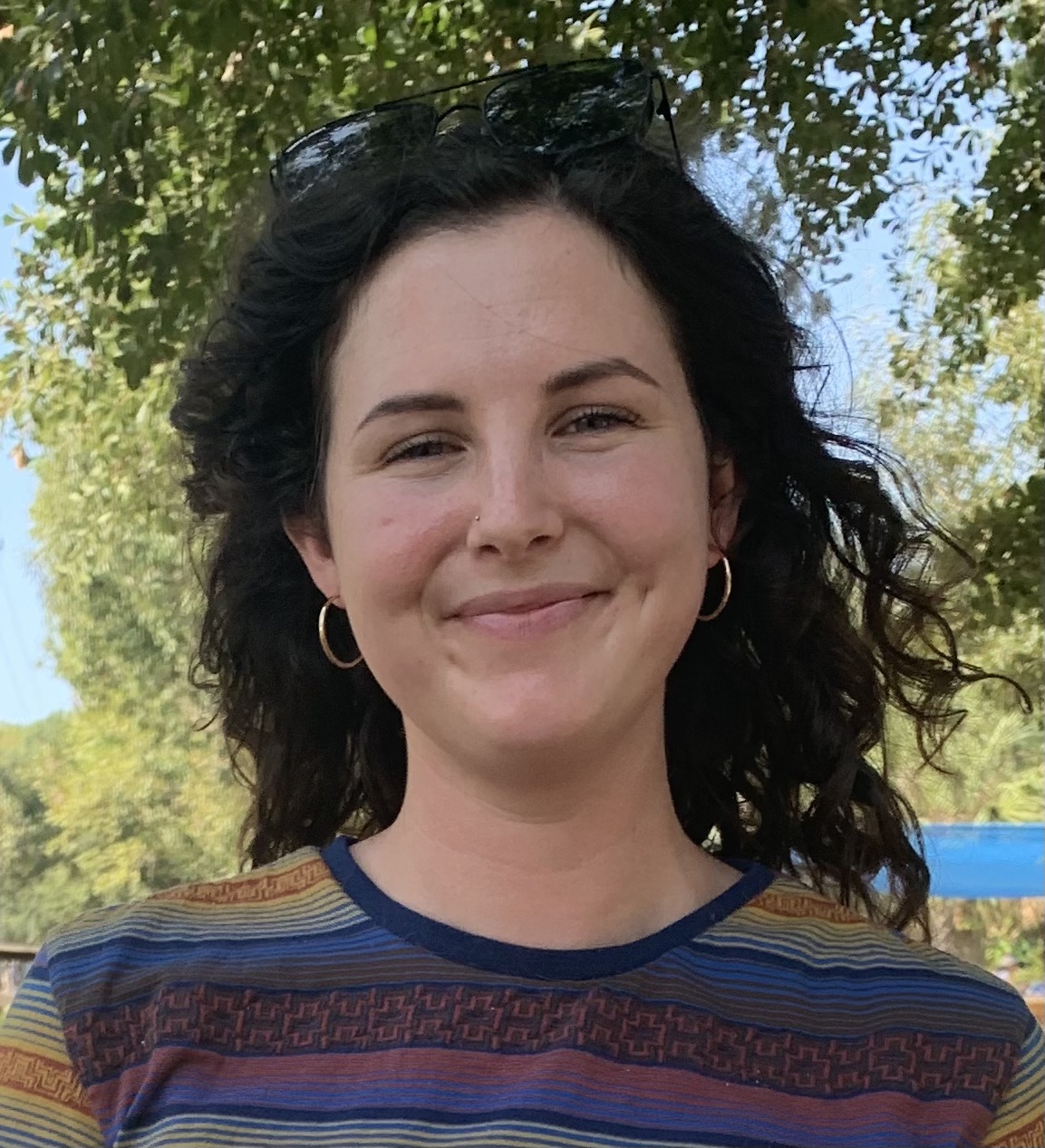
Zoë Porter
Advisor: Dr. Justin Murdock
My dissertation will focus on assessing the recovery of ecosystem services in restored
agricultural wetlands in West Tennessee and Kentucky. Specifically, I will be looking
at nutrient (nitrogen and phosphorus) retention and greenhouse gas (GHG) production
tradeoffs to better understand the conditions that optimize flux rates.
- B.S. in Biology at Oklahoma State University
- M.S. in Biology at University of West Florida

Sahar Salimi
Advisor: Dr. Mostafa Rahnama
I am working on Fusarium sp. genome evolution and structure. I use bioinformatics
and machine learning techniques to identify and characterize transposon elements.
Additionally, I am exploring the effect of transposon on gene expression and genome
structure.
- M.S. Institute for Advanced Studies in Basic Sciences (IASBS)
- B.S. University of Kurdistan
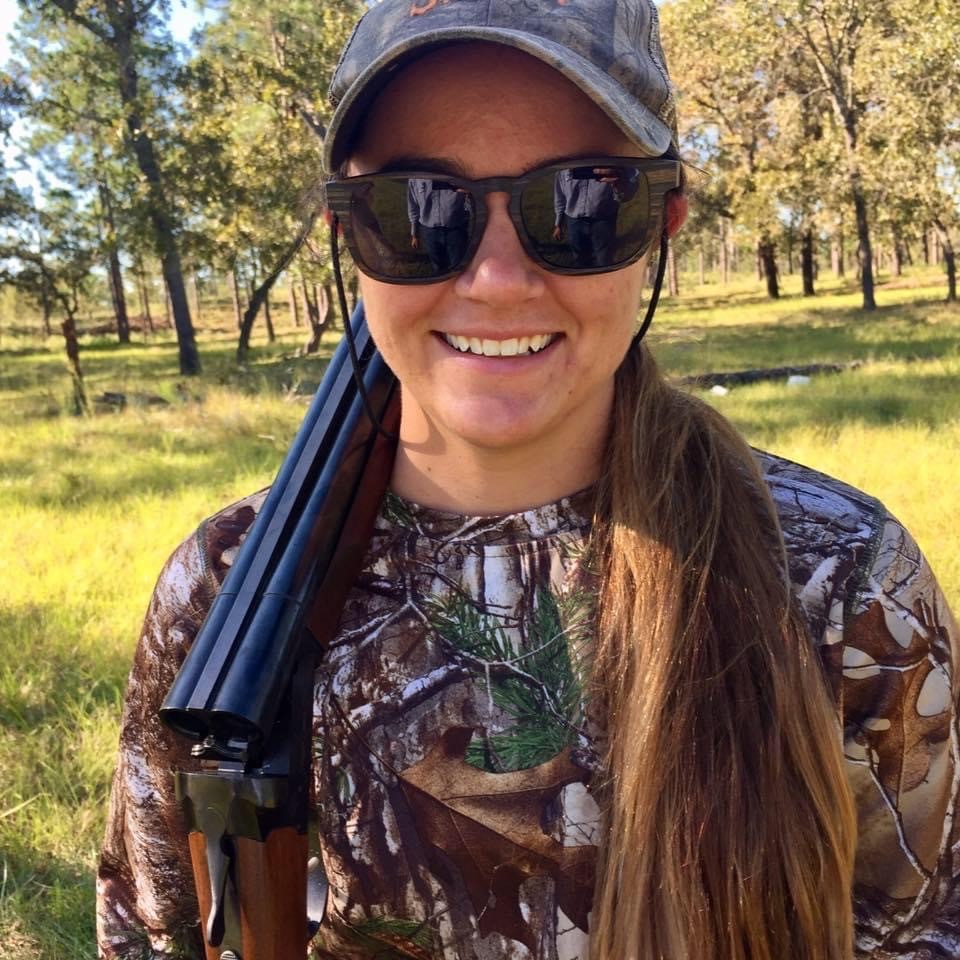
Sara Watkins
Advisor: Dr. Brad Cohen
Broadly, I study the ecology of eastern wild turkeys. Specifically, I am interested
in kin selection, social network analyses, and nest parasitism. My project collaborates
with Kentucky Fish and Wildlife, The Hunting Public, Turkeys for Tomorrow, NWTF-KY,
and will detail wild turkey reproductive ecology, including gobbling chronology, to
aid in conservation planning for turkeys in the Green River basin.
- B.S. Wildlife Ecology and Conservation Science, University of Florida
- M.S. Forestry and Natural Resources, University of Georgia
Office: Pennebaker 410
Email: sawatkins42@tntech.edu, kyturkeys@gmail.com
M.S. Students
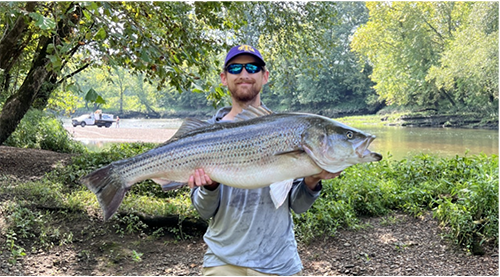
Dalton Bonds
Advisor: Dr. Mark Rogers
My thesis research is evaluating Striped Bass (Morone saxatilis) seasonal movements
and predation of stocked trout on the lower Caney Fork River. I will be using acoustic
telemetry to track movements and gastric lavage to quantify stomach contents of Striped
Bass. I am hopeful that this research will be able to aid state agency personnel with
future trout stocking management decisions.
- B.S. Wildlife and Fisheries Management, University of Tennessee, Knoxville
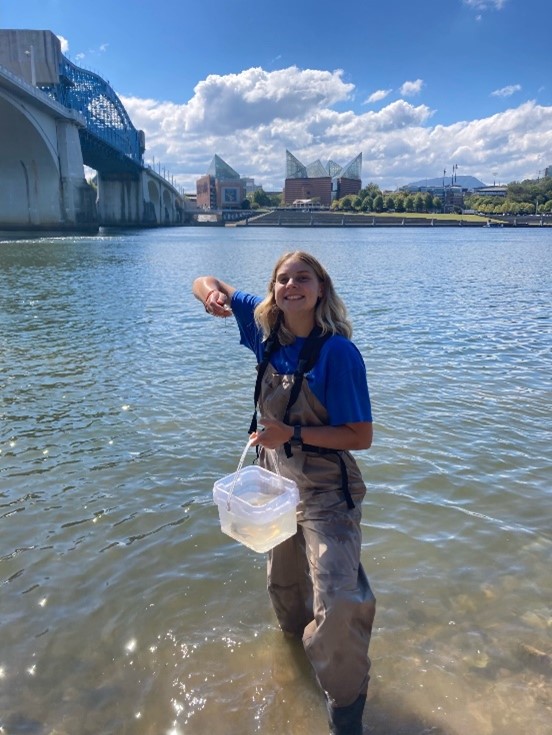
Avery Davis
Advisor: Dr. Kit Wheeler
For my research, I will conduct abundance estimates for Spotfin Chub (Erimonax monachus)
in the Emory River Watershed through snorkel surveys. I will also assess the feasibility
of using PIT tags for future studies of adult Spotfin Chub movement and demographic
dynamics. Spotfin Chub is a federally threatened minnow native to the Tennessee River
system. This study will help with the initiation of a long-term monitoring program
in the Emory River Watershed and provide critical information about the efficacy of
using PIT tags to study Spotfin Chub populations.
- B.S. Environmental & Ecological Science, Elon University
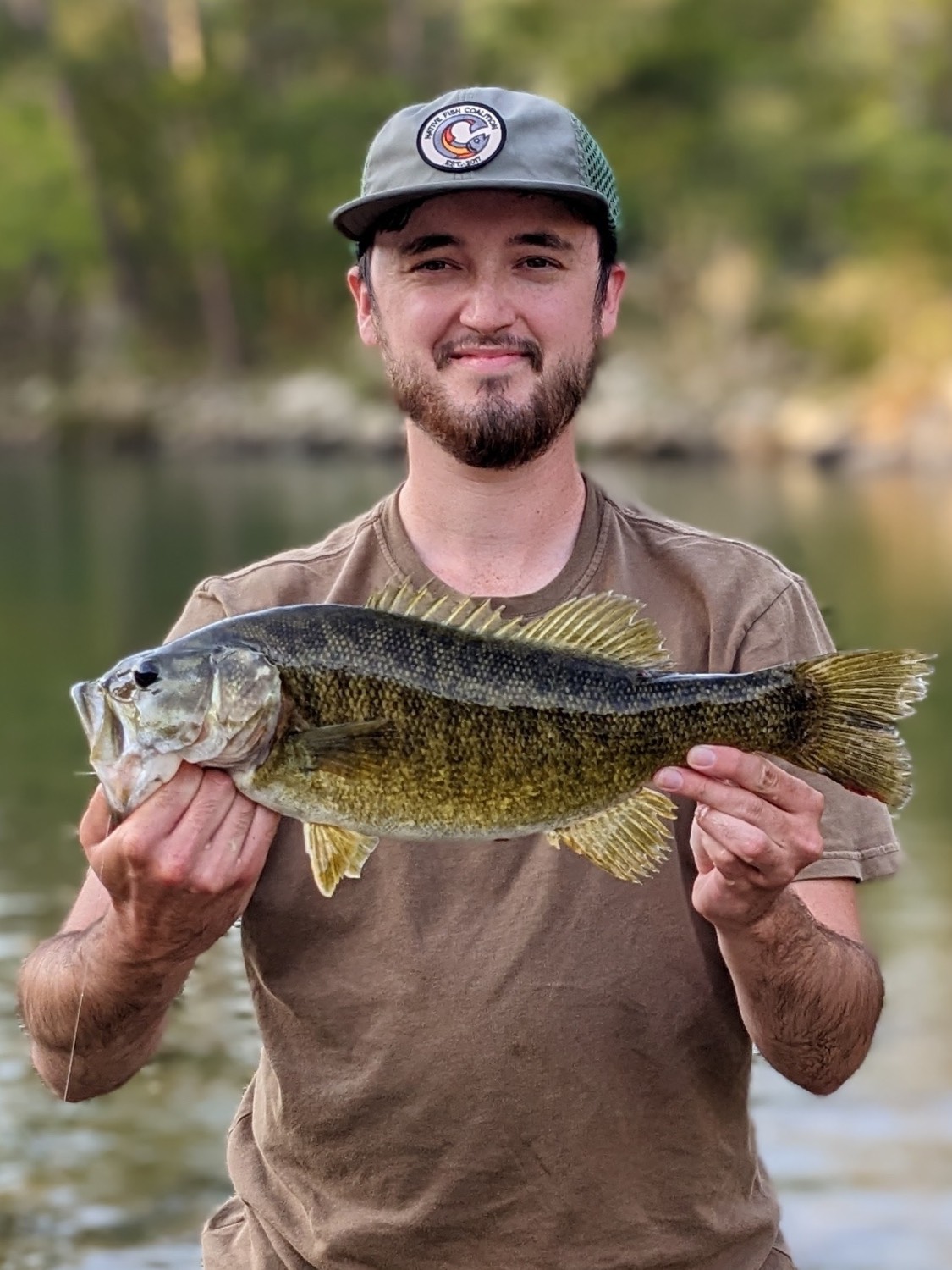
Ethan Dodson
Advisor: Dr. Kit Wheeler
My research will evaluate habitat suitability and change for Boulder Darter (Nothonotus
wapiti) in the Elk River following the removal of a low-head dam. Boulder Darter is
a federally endangered fish species endemic to the Elk, and the removal of this long-standing
barrier will reconnect it to approx. 40 miles of formerly fragmented and impoundment-altered
habitat. Through this study, I hope to characterize the potential for future Boulder
Darter recovery actions in currently unoccupied but newly suitable Elk River habitats.
- BS - Fisheries & Wildlife Science, Arkansas Tech University
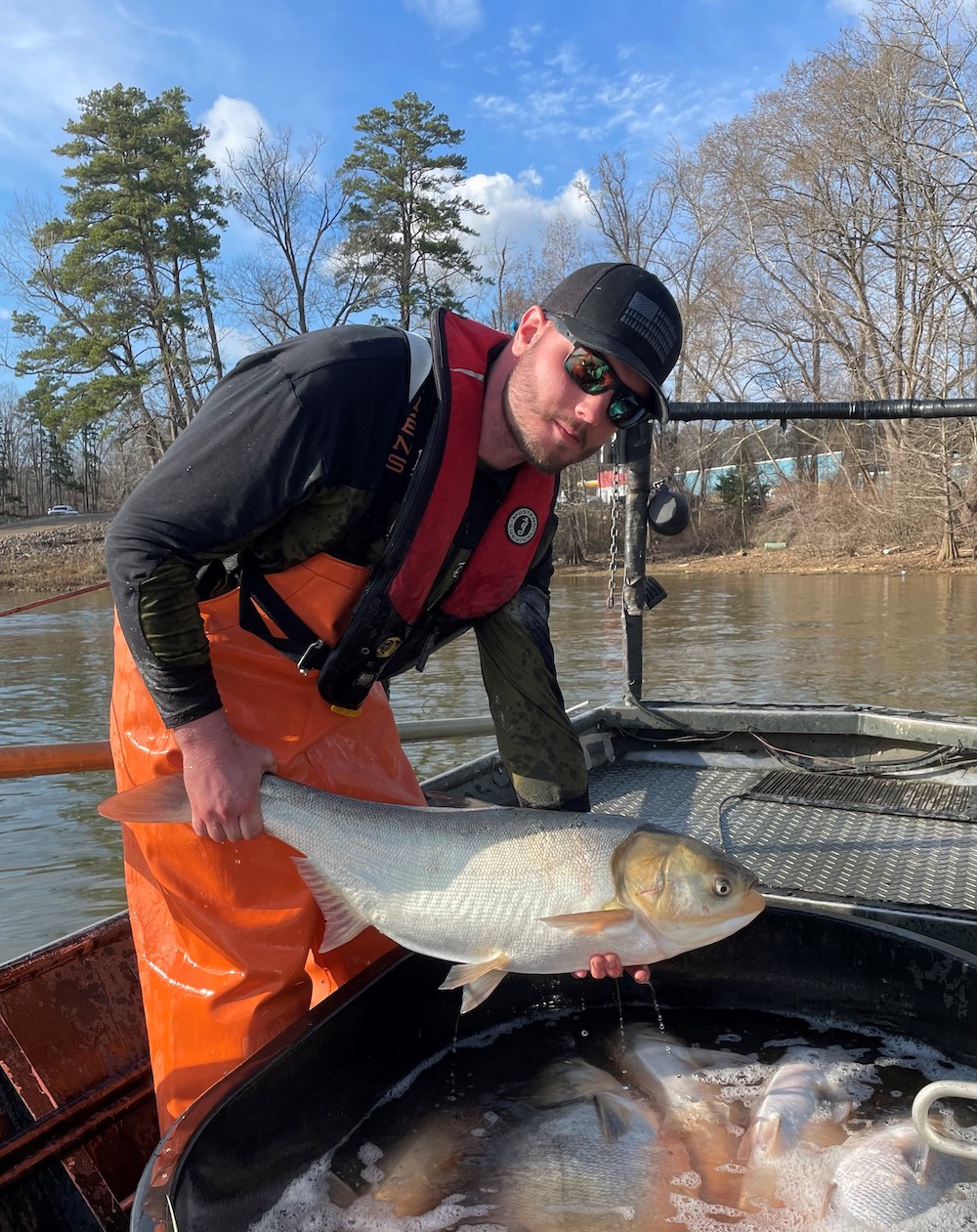
Andrew Gable
Advisor: Dr. Mark Rogers
My thesis focuses on the dietary overlap between invasive Silver Carp (Hypophthalmichthys molitrix) and native Gizzard Shad (Dorosoma cepedianum) in Kentucky and Barkley Reservoirs. More specifically, characterizing the feeding selectivity of both species and relating those findings to the available food resources in Kentucky and Barkley Reservoirs on seasonal and spatial levels. I am hopeful that this information can give further insight into how Silver Carp are impacting native fish assemblages in the southeastern reservoirs.
- A.S. Wildlife and Fisheries Management, Hocking College
- B.S. Wildlife and Fisheries Management, West Virginia University
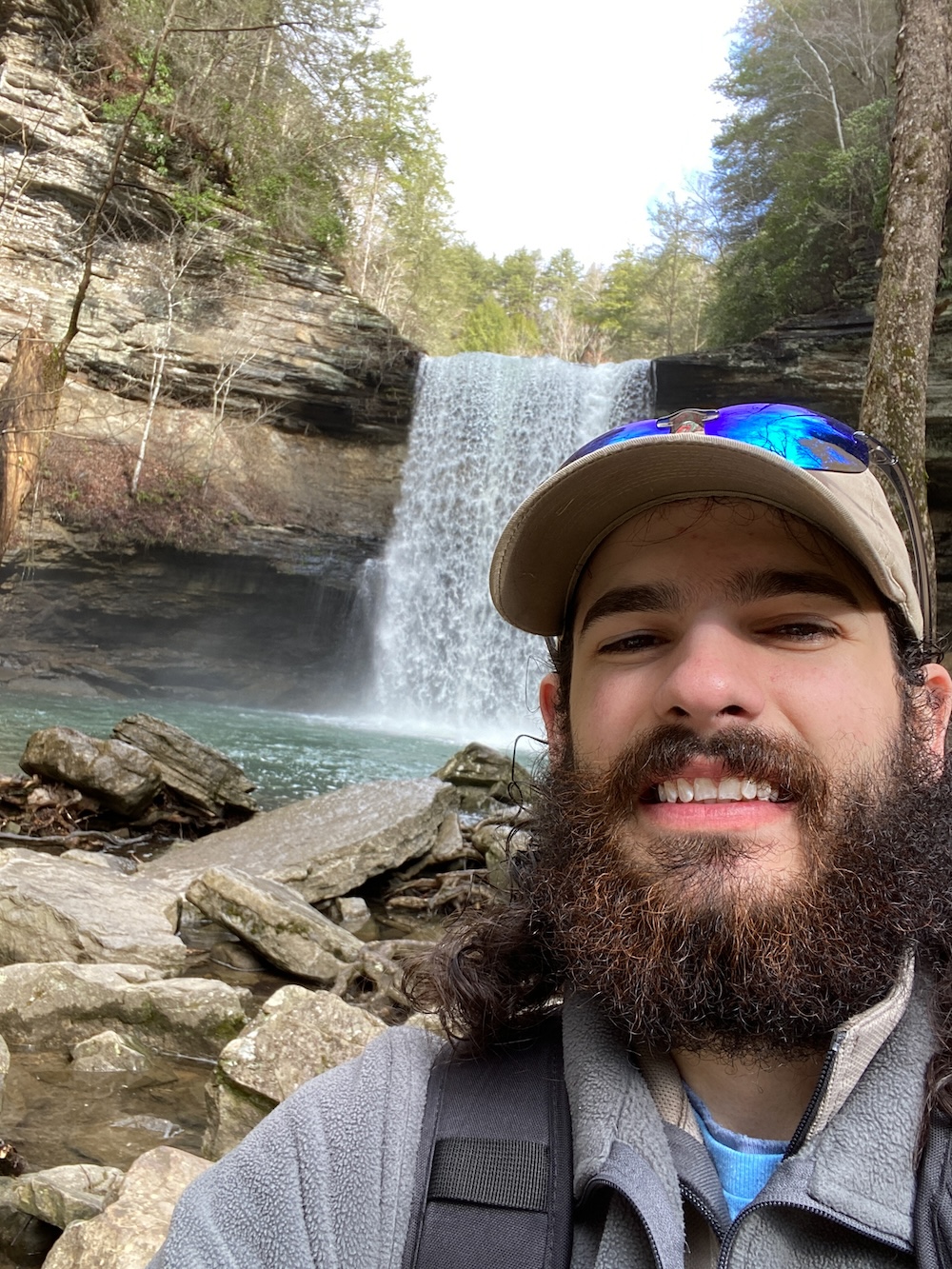
Eli Harris
Advisor: Dr. Shawn Krosnick
My thesis research focuses on examining the floristics of Window Cliffs State Natural
Area, with a particular emphasis on the limestone glade habitats. My research will
involve ArcGIS and habitat comparison analyses. I aim for my study to contribute to
a better understanding of the flora diversity at Window Cliffs and provide the park
service with information for the conservation and management of these unique habitats
within Tennessee.
- A.S., Science, Volunteer State Community College
- B.S., Biology - Botany, Tennessee Technological University
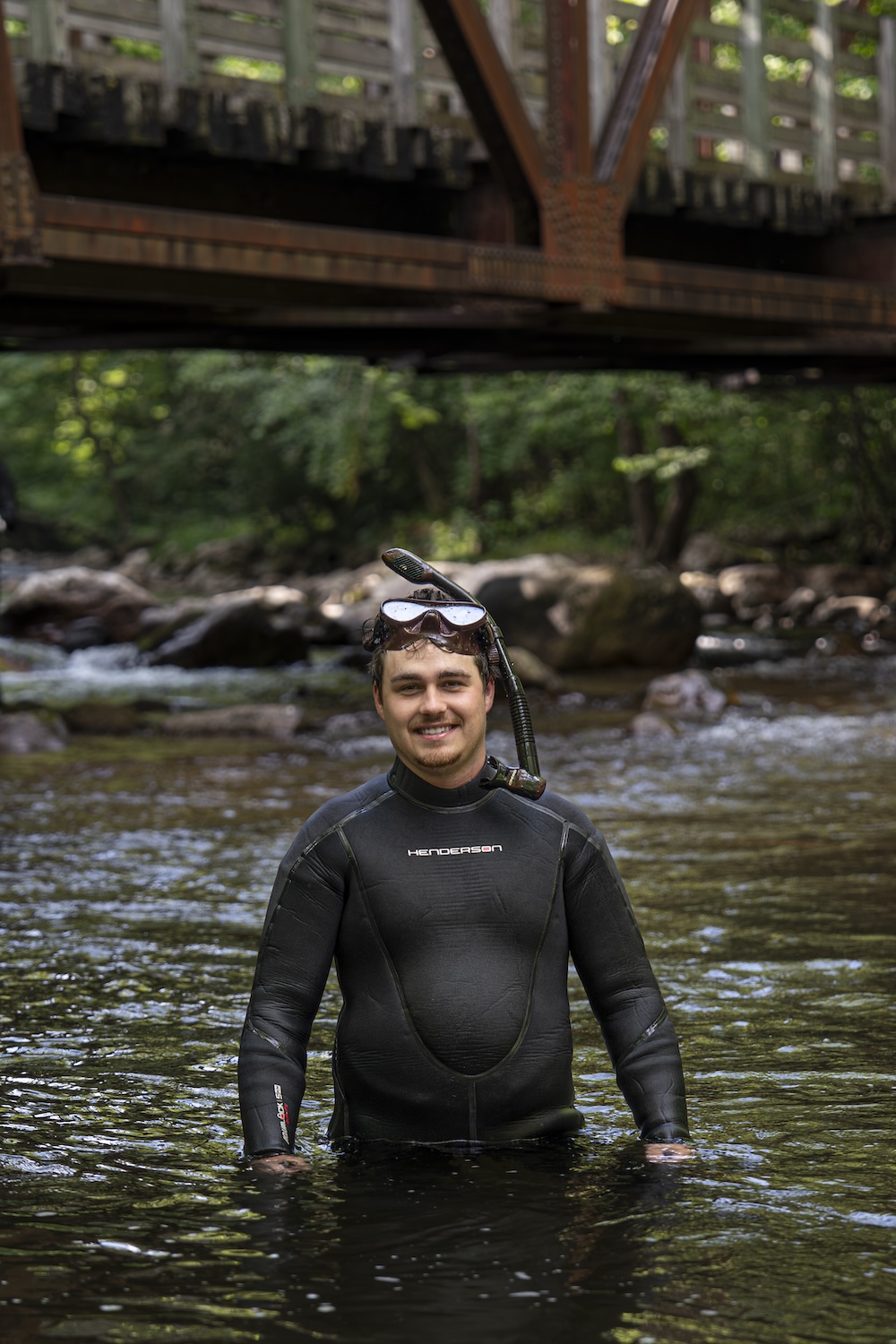
Seth Haston
Advisor: Dr. Justin Murdock
I am studying the spatial and temporal distributions of hypoxic zones in the Calfkiller
river and how that pertains to reintroduction of the Bluemask Darter (Etheostoma akatulo).
With many groundwater inputs, my goal is to try to determine where, when, and why
there are zones of low water quality within the Calfkiller River. I hope that my research
may be used to inform management decisions within the watershed, aid in the restoration
of the Bluemask darter, and help improve understanding of water quality on the health
of the aquatic species being affected.
- B.S., University of Tennessee

Brandon Hein
Advisor: Dr. Mostafa Rahnama
In my project with the Rahnama lab, I am focusing on investigating histone modifications
and their impact on gene expression and cellular processes.
- B.S. Wildlife Biology, University of Montana
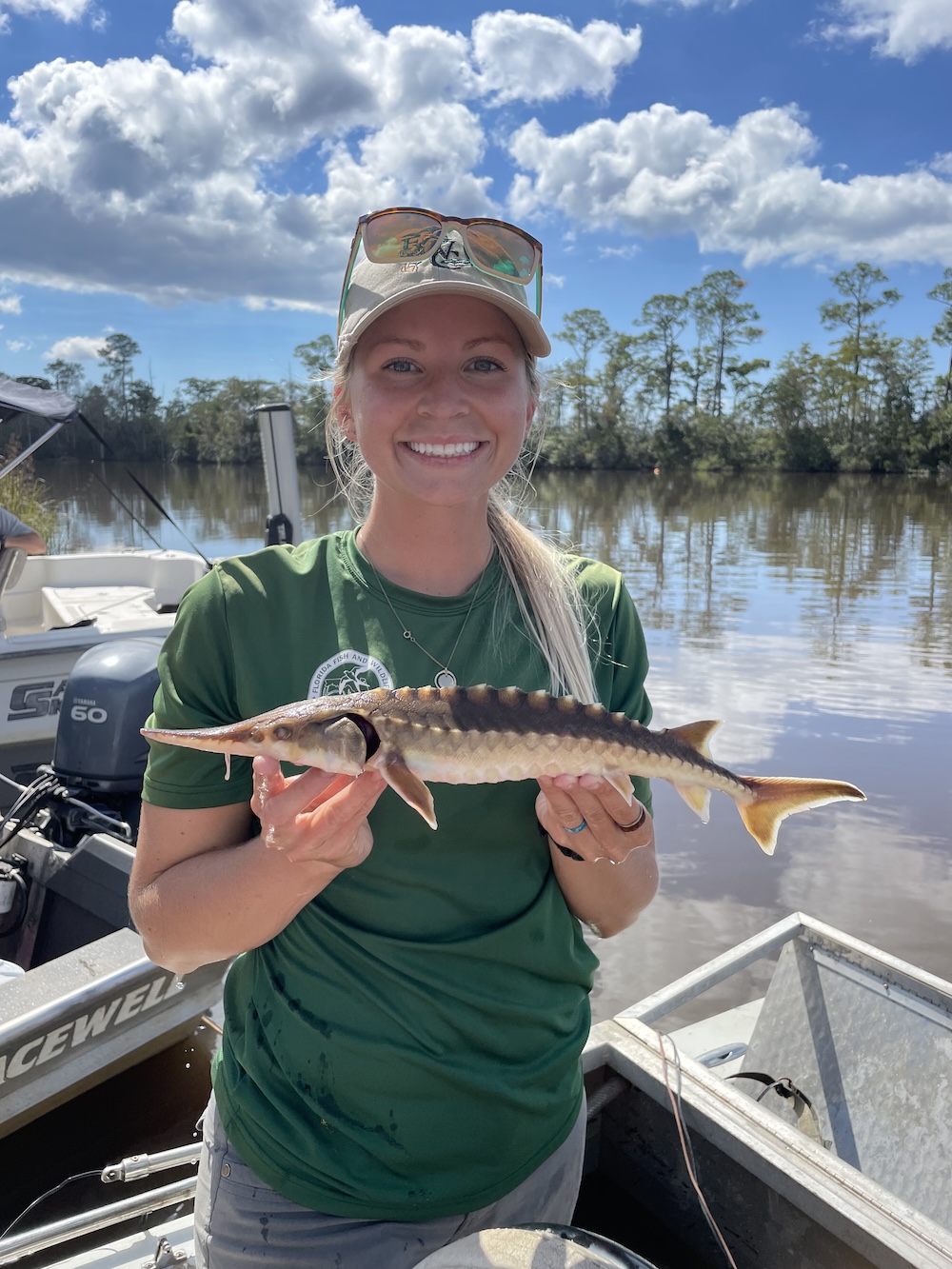
Kirsten Humphries
Advisor: Dr. Kit Wheeler
For my research, I will conduct a population assessment on a newly discovered, wild
population of Barrens Topminnow (Fundulus julisia). The Barrens Topminnow, a small
fish endemic to middle Tennessee, is a federally endangered species in rapid decline
due to multiple factors, one being the presence of invasive Western Mosquitofish (Gambusia
affinis). I will also assess the susceptibility of the new Barrens Topminnow population
to Western Mosquitofish invasion.
- B.S., Biology, Jacksonville State University
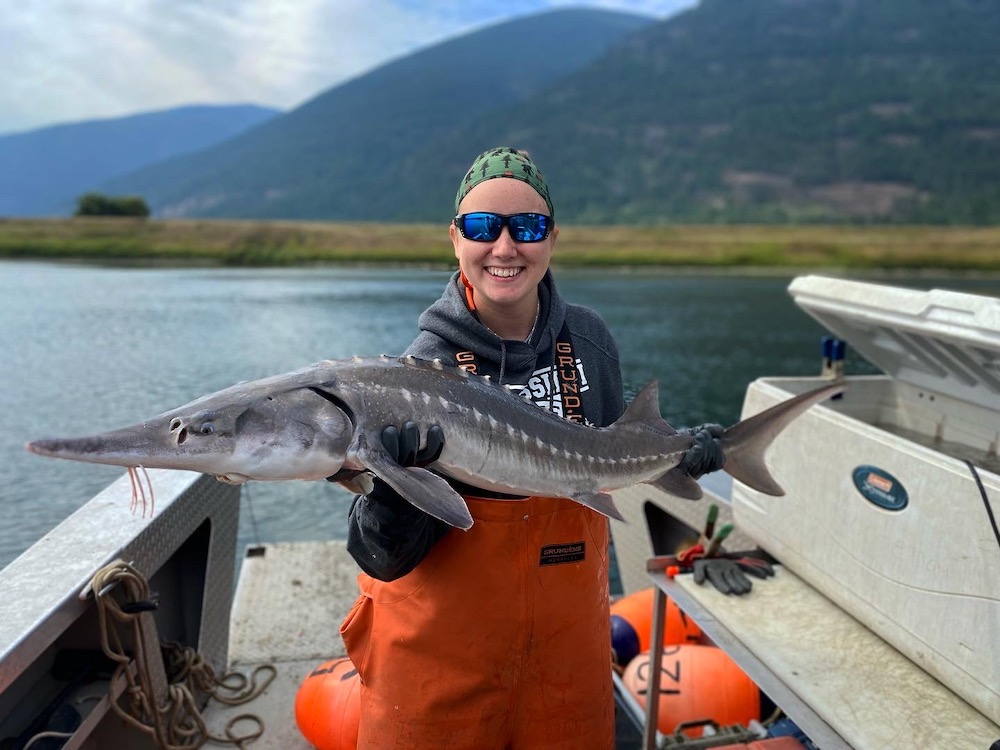
Rachael Irby
Advisor: Dr. Mark Rogers
My thesis research is evaluating the changes in population structure of Silver (Hypophthalmichthys
moltrix) and Bighead Carp (Hypophthalmichthys noblis) in the Tennessee and Cumberland
River systems through time. I am especially interested in the effects of commercial
fishing incentives on invasive bigheaded carp populations. My research will provide
an understanding of the invasion status, needs for control (e.g., commercial fishing,
movement barriers, etc.), and future threats from bigheaded carps.
- B.S. Wildlife, Fisheries, and Aquaculture, Mississippi State University
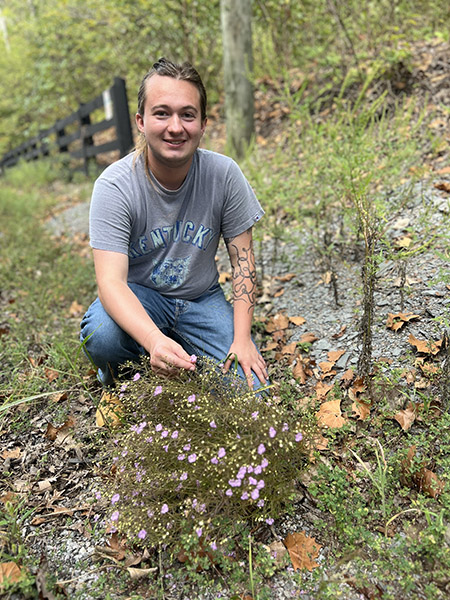
Windsor Kiefer
Advisor: Dr. Shawn Krosnick
I am studying the life history of Physaria globosa, a rare and endangered plant in the mustard family (Brassicaceae). This species is only found in a few locations in Tennessee, Kentucky and Indiana. We currently know very little about how long this species lives for. In Tennessee, it appears to function as a biennial, reproducing in the second year and dying. In Kentucky, there is some evidence that it may behave as a short-lived perennial. My work will examine phenotypic plasticity within populations and attempt to identify morphological characteristics associated with each stage of development. These data will then be used to generate life history matrices, or matrix population models, to help conservation workers better estimate population sustainability over time.
- B.S. Biology, University of Kentucky

Sabihatun Nur Meem
Advisor: Dr. Alba Frias-De-Diego
Joining Dr. Frias’ lab, my research focuses on the discovery and characterization
of novel antimicrobial compounds to combat the rising threat of antibiotic resistance.
I am particularly interested in evaluating the efficacy of bio-active peptides against
multi-drug-resistant pathogens. By identifying these new molecular scaffolds, my work
aims to contribute to the next generation of therapeutic alternatives to traditional
antibiotics
- MBBS (Bachelor of Medicine and Bachelor of Surgery), Chattogram International Medical College, University of Chittagong, Bangladesh
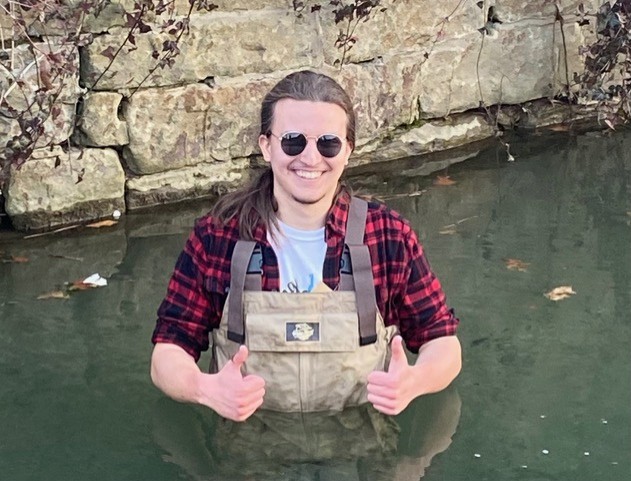
Noah Meyer
Advisor: Dr. James Wood
I am researching Hornleaf Riverweed (Podostemum ceratophyllum) and the effect both water velocity and stem length have on benthic macroinvertebrates communities. I am also analyzing how water velocity and stem length affect fish communities near Hornleaf Riverweed clusters. Our study area will be in a relatively pristine river in Tennessee.
- B.S. Ecology, Evolution, and Organismal Biology, West Liberty University
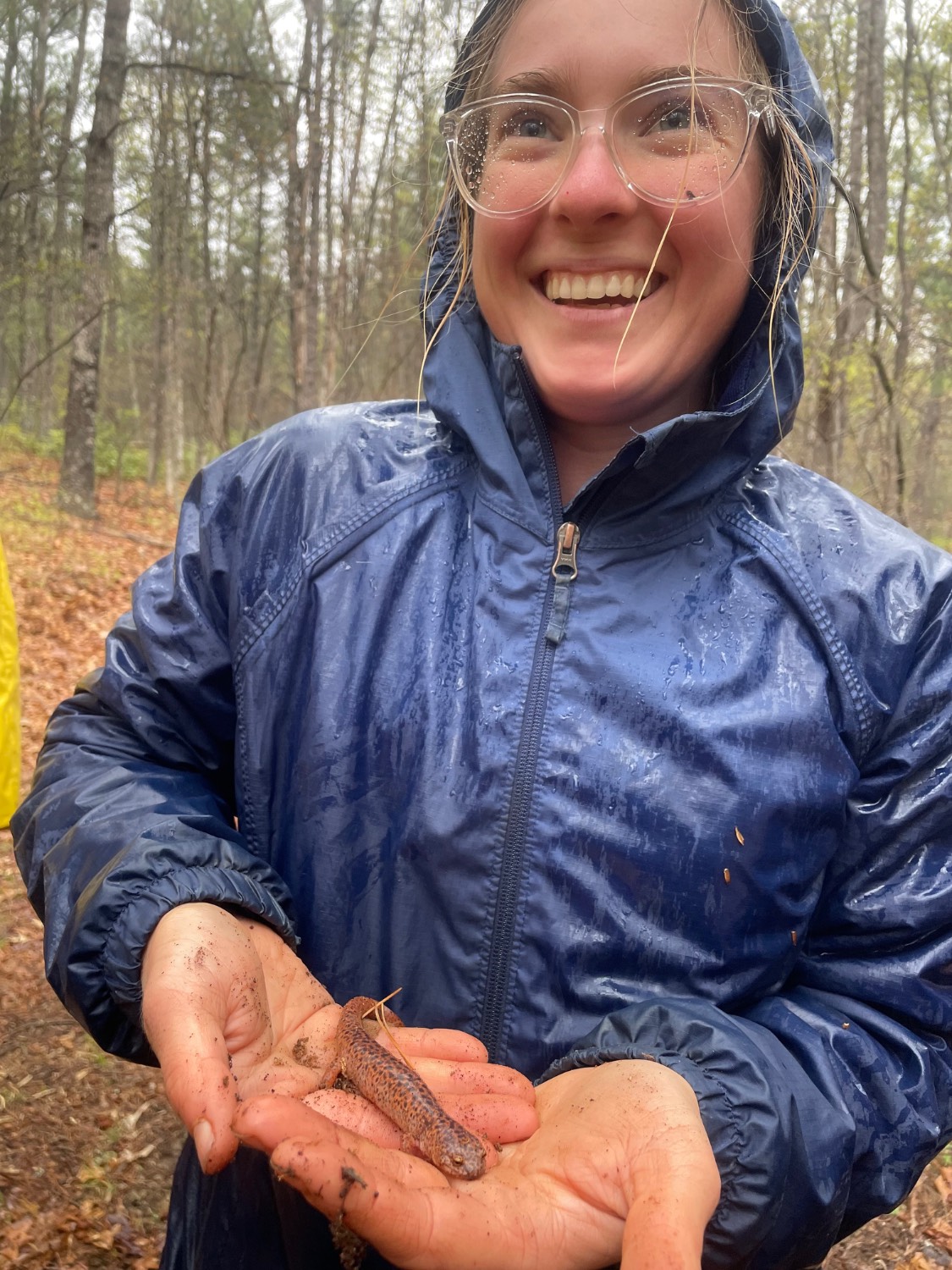
Jenna Morris
Advisor: Dr. Hannah Kinmonth-Schultz
My research examines how integrating native wildflower species into cover crop systems can serve as a sustainable pest management strategy for farms in Middle Tennessee. By incorporating wildflowers into existing rotations, the project evaluates their influence on beneficial arthropod populations, soil microbial communities, and overall crop performance, offering a detailed profile of plant–microbe–insect interactions across a full growing season. Through concurrent monitoring of arthropods and soil health—using nutrient analyses, microbial biomass measurements, and microbiome diversity assessments—the study investigates how these ecological relationships contribute to natural pest suppression and support soil function.
- B.S. Environmental Biology, Liberty University
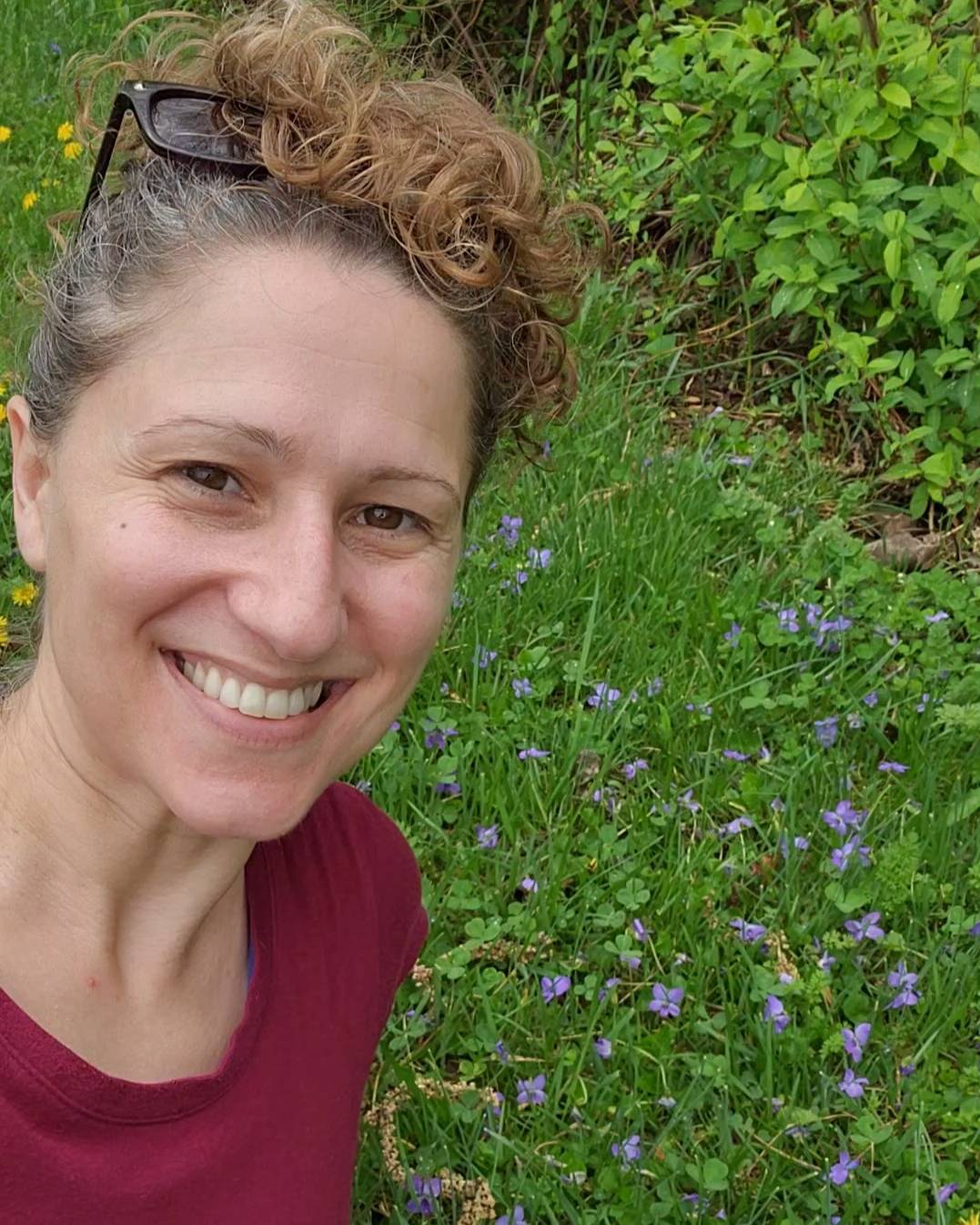
Stephanie Oliphant
Advisor: Dr. Shawn Krosnick
My thesis research is focused on three reservoirs in the Tennessee River. First, I
will conduct a floristic inventory of the aquatic and riparian plants in each area.
Then, I will compare my inventory to the eDNA findings of another student who is working
in the same locations. I will look for plant species found in the eDNA samples that
are not found in my inventory and vice versa. Finally, I will carry out a historical
analysis of the flora present before and after dam construction. My research will
provide a contribution to the occurrences of native and non-native plant communities
of the Tennessee River valley and a perspective on how damming changes the biodiversity
of a river. It may also help reservoir managers make decisions regarding pesticide
applications for the control of invasive aquatic species.
- B.S. Environmental Science, Delaware Valley College
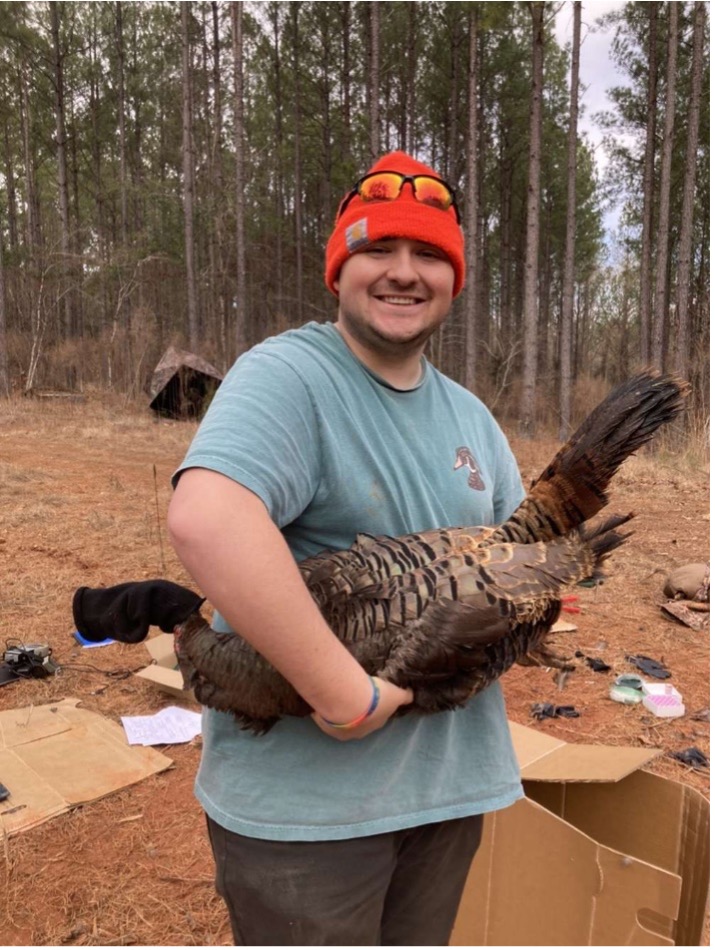
Timothy Radtke
Advisor: Dr. Brad Cohen
My research focuses on the ecology of upland game birds. Specifically, on disturbance
effects of off-highway vehicles (OHV) on ruffed grouse and eastern wild turkey breeding
behaviors and distributions. Human-caused disturbances can indirectly affect vital
rates of wildlife populations as much or more than natural predators, especially during
the breeding season. With declines in both populations of ruffed grouse and wild turkey
in Tennessee, I will investigate how patterns in drumming and gobbling are affected
by OHV access and human disturbance.
- B.S. Wildlife, Purdue University
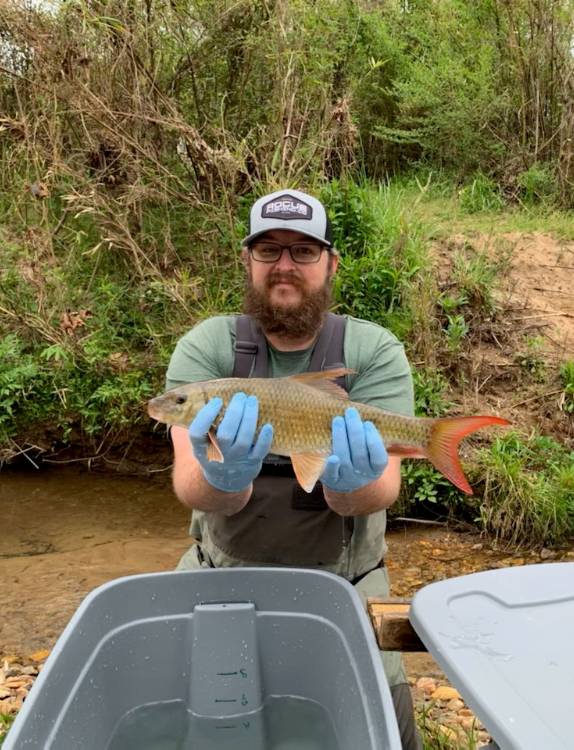
Mark Rine
Advisor: Dr. Kit Wheeler
My thesis research will examine variation in stream fish communities in response to temporal occurrences of flow intermittency. To study the effects of flow intermittency on stream fish, I will sample three sub-watersheds with disparate flow regimes and, using multivariate analyses, identify what predictor variables may explain the observed variation of the fish assemblages.
- B.S. Wildlife and Fisheries Science, Tennessee Technological University
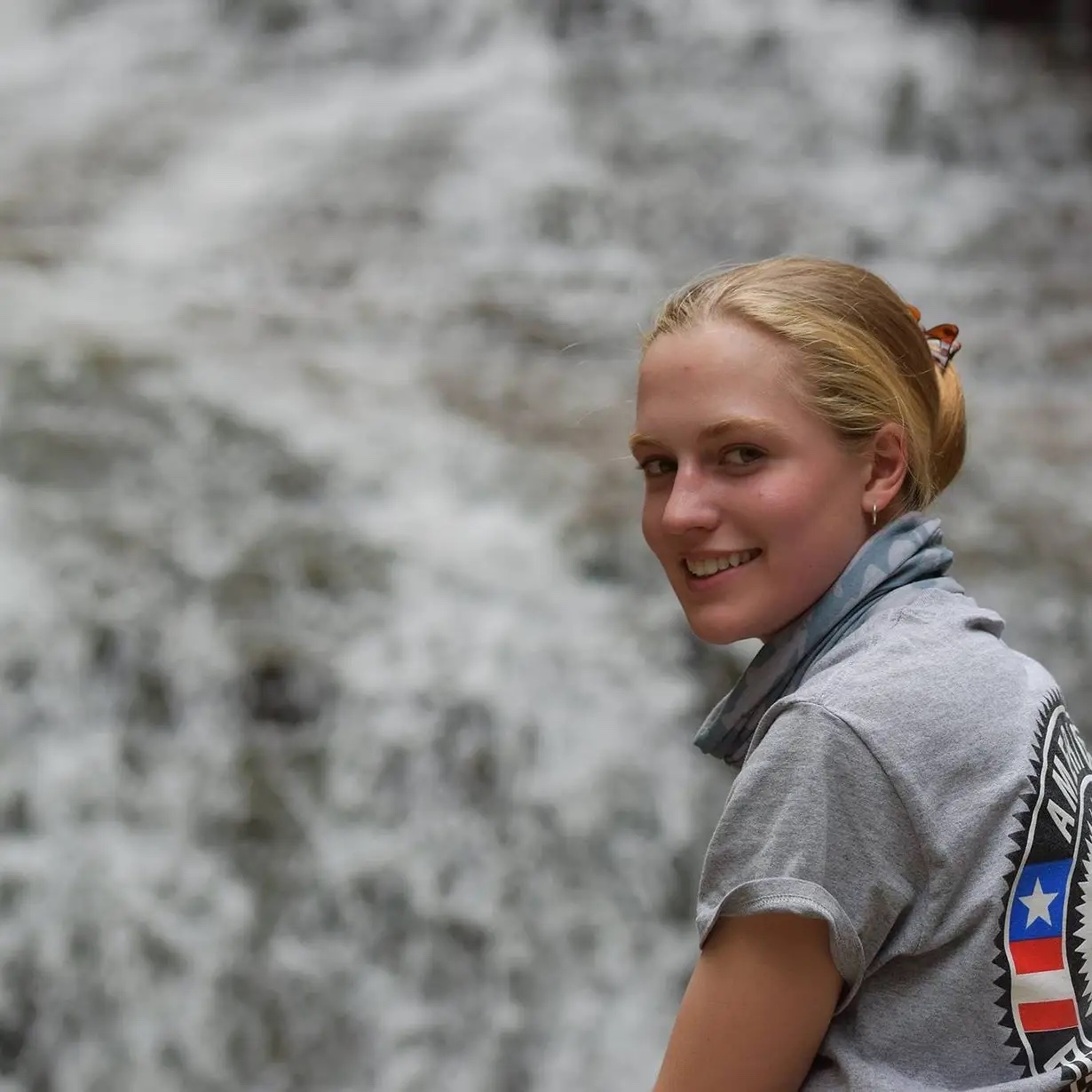
Katelynn Sallack
Advisor: Dr. Amanda Rosenberger
My current research project involves updating the freshwater mussel distribution within
the Hatchie River. West Tennessee is an understudied region, and many of its rivers
have been highly modified through channelization. The Hatchie River remains one of
the least degraded rivers in the area, and through my research, I will provide information
on the freshwater mussel assemblage as well as identify habitat characteristics important
to those species.
- B.S. Clarion University of Pennsylvania (now a campus of Penn West University)
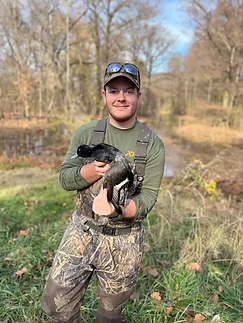
Nathan Steelman
Advisor: Dr. Brad Cohen
My research is focused on the ecology of wintering waterfowl in Western Tennessee.
Specifically, I will investigate the environmental and anthropogenic impacts on space
use, habitat selection, and activity patterns of wintering mallards and gadwall. While
mallards have historically been the most common waterfowl species in the Mississippi
Alluvial Valley, growth of gadwall populations and increased hunter harvest necessitates
a greater emphasis on research for this generally underrepresented species.
- B.S. Michigan State University
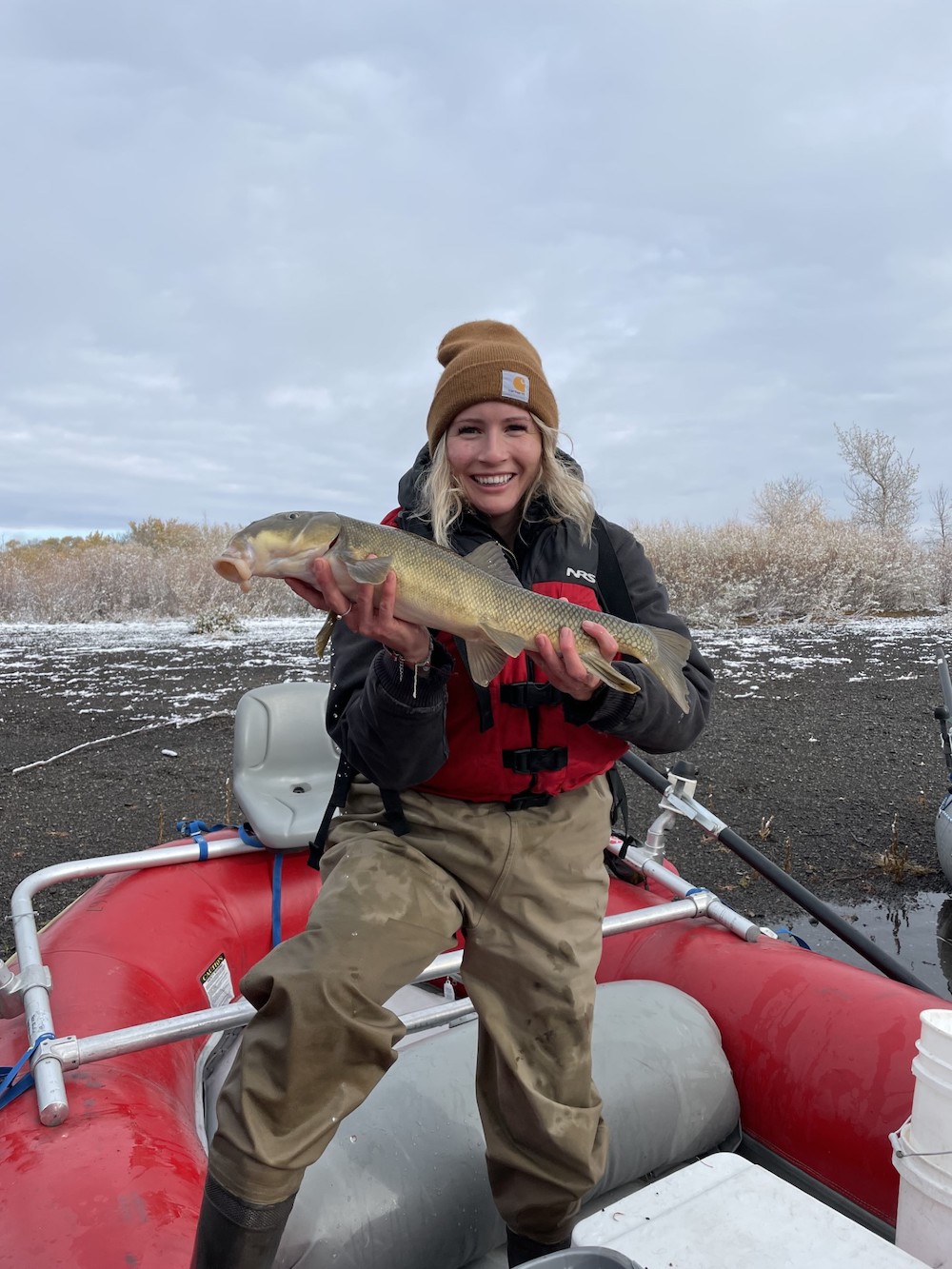
Hannah Swain-Menzel
Advisor: Dr. Amanda Rosenberger
My research project focuses on investigating factors affecting eDNA detectability to determine current habitat requirements and the extant distribution of two rare fishes: the Duskytail Darter (Etheostoma percnurum) in Copper Creek, Virginia and the Chucky Madtom (Noturus crypticus) in Little Chucky Creek, Tennessee. Our goal is to develop occupancy modelling centered around eDNA and remotely sourced ecological data. This will help us understand the parameters of eDNA as a tool for the detection of small, rare fishes and inform mangers of potential reintroduction sites for the Duskytail Darter and the presence of the potentially extirpated Chucky Madtom.
- B.S. Fisheries, Range and Wildlife Management, Brigham Young University-Idaho
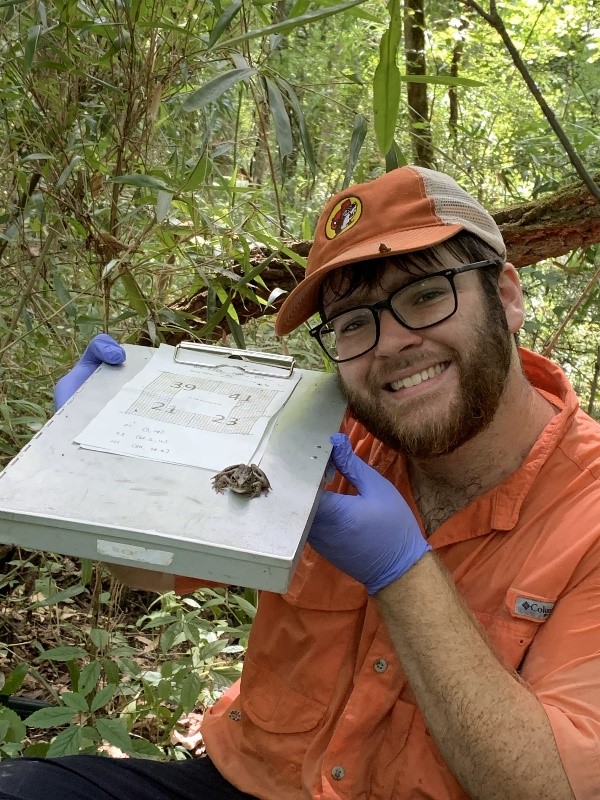
Hunter Teal
For my research, I will be conducting a status survey of eastern harvest mice (Reithrodontomys humulis), western harvest mice (R. megalotis), and southern bog lemming (Synaptomys cooperi) in the Mississippi Plain of Arkansas. To accomplish this, I will be collecting DNA from fecal pellets left at bait stations set throughout the sampling region. This data will allow us to have a better understanding of the target species individual distributions.
- B.S. Biology, University of West Georgia
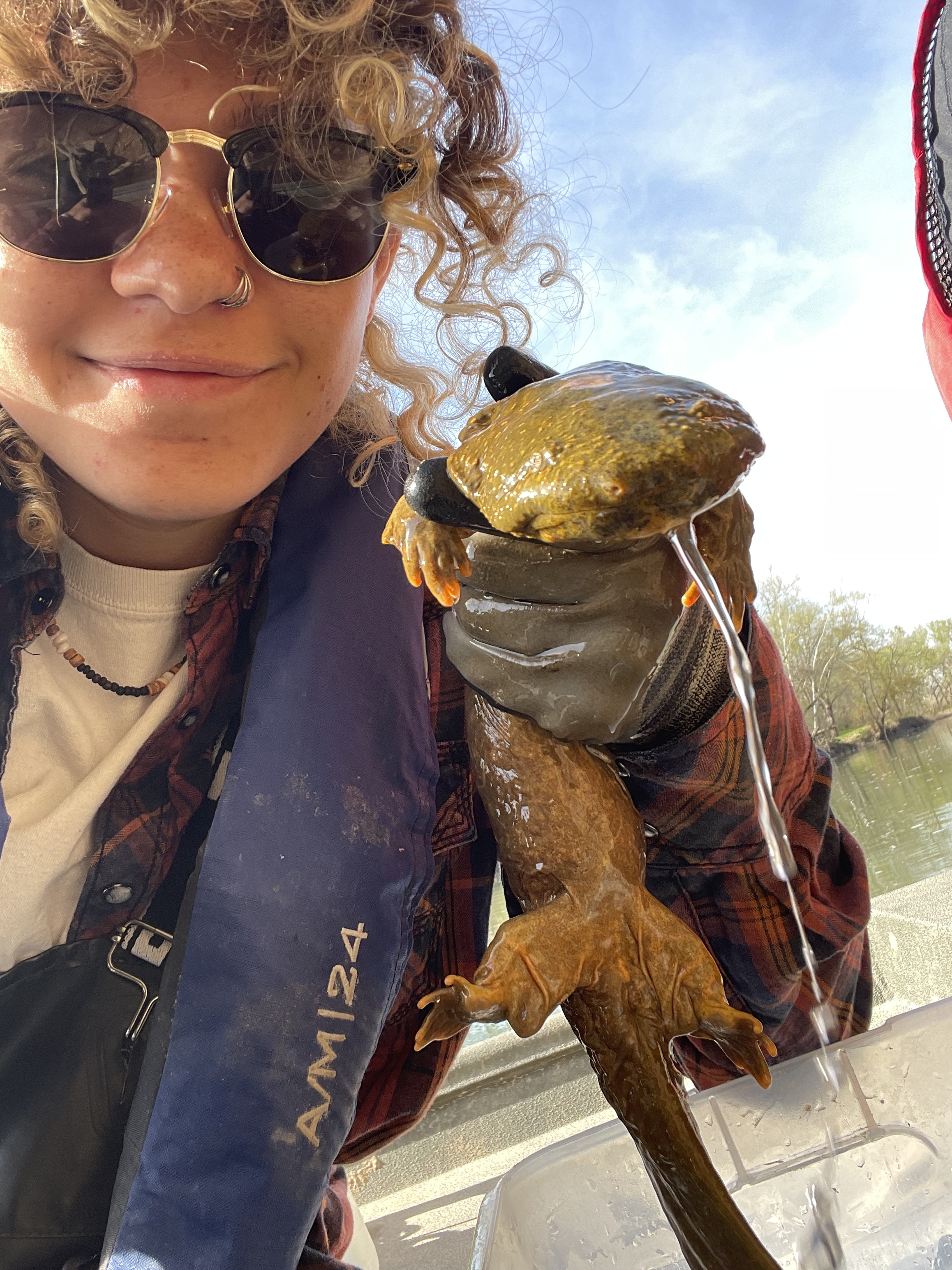
Zoe Wills
I am researching how bats influence the diversity of animal life within cave systems in the Cumberland Plateau region of Tennessee. By using molecular tools as an alternative to traditional sampling techniques, I aim to conduct biological surveys with reduced harm to the cave ecosystem. This project should help state agencies make informed management decisions.
- B.S., Wildlife and Fisheries Biology, Clemson University

